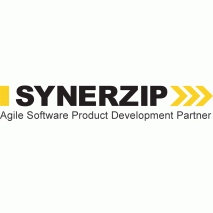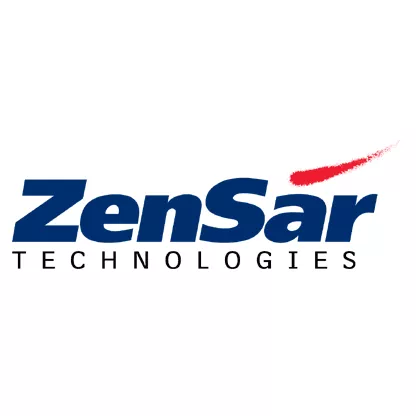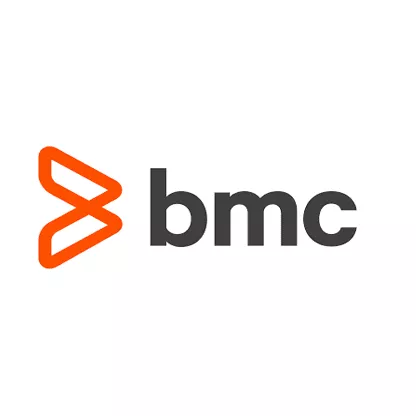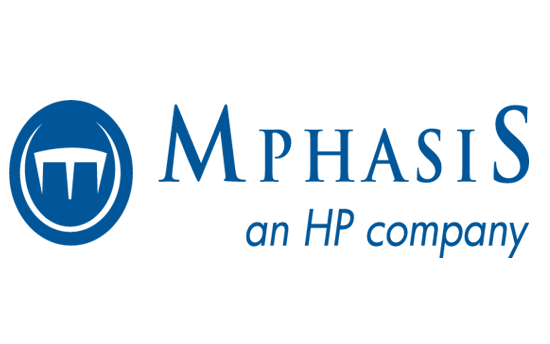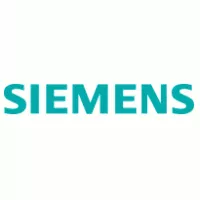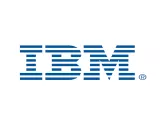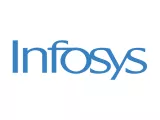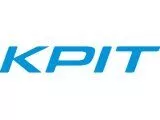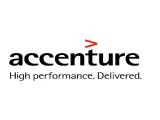AWS with DevOps Certification Course
Overview
One of the top networking options among the various providers of cloud services is Amazon Web Services. Customers may obtain the most economical and protected manner to develop and manage their apps from Amazon, thanks to various functionalities.
To build a web application in Python and Angular on AWS, a cloud engineer must have a strong understanding of and proficiency in the DevOps environment. This is because the only other environment that offers a variety of tools for monitoring, including Maven, Jenkins, chef, puppet, ansible, docker, Kubernetes, etc., is DevOps. A cloud engineer can efficiently work in an AWS DevOps environment using a systematic approach.
Everybody is familiar with the AWS (Amazon Web Services) Cloud, and we can all see how quickly on-premises technology is moving to various cloud platforms. As the responsibility for infrastructure is transferred from IT Operations teams to cloud providers, the cloud is heaven for these teams. Cloud platforms now offer new services with an entirely different focus, and everyone uses them, whether they are developers or operations engineers.
50+ hrs course duration
15+ hrs assignment duration
100% receive an Offer Letter

AWS with DevOps Certification Course
Specialists from AWS Training in Pune reached out to more than 100 people who work in the HR department of MNCs and have a large opening for cloud professionals through various job gateways.
Duration
4 months
Modules Covered
AWS
Assignments
20+ Hours
Recordings
1 Year
Support
24X7
Study Material
Installation, setups, and eBooks
Placement Support
100% receive an Offer Letter
Calls
unlimited till 1 year
EMI Option
Available
Enquire Now
Become AWS with DevOps Certified
Specialists from AWS Training in Pune reached out to more than 100 people who work in the HR department of MNCs and have a large opening for cloud professionals through various job gateways. They all stated they were looking for someone with a strong understanding of AWS (Solution Architect level) and practical experience in a DevOps environment. Examine the position specification for any category of a cloud engineer or a Dev operations engineer. You will see that the industry is undoubtedly looking for individuals with some level of expertise in cloud computing. Still, they always value professionals who are more knowledgeable about the DevOps environment.
Since there are two modules in the AWS DevOps Certification course—AWS and DevOps—we make it entertaining by teaching AWS with the most fundamental principles in a broad way to ensure that people with non-IT backgrounds or newcomers may also comprehend and benefit from the same forum. We constantly maintain a leisurely pace and work to illustrate the subject with real-life examples. To ensure that professionals can take this training from the perspectives of both technologies and that they will be able to comprehend the necessity for integrating these two technologies, we first offer a few AWS lessons before introducing DevOps. We also provide AWS and DevOps Course separately.
One of the most popular courses AWS Training in Pune offers is the AWS DevOps Classes in Pune. The primary explanation is that a person’s chances of landing a job in the cloud sector are doubled.
We usually advise having a complete comprehension in the very first session, a general overview, and knowledge of all the available benefits after completing this class.
One of the services offered in the AWS dashboard can be used to declare the pipeline defining the release when a developer creates an application that will be reviewed and delivered on AWS. Jenkins does not require the operations team to install, configure, or maintain it on a server, and as a result, the Jenkins cluster does not require maintenance either. The functionality of several crucial tools, including Github’s Artifact Repository, Container’s Orchestrator, Tool for Code Pipeline and Automation, etc., is covered by the vast canopy of services provided by AWS. AWS DevOps are significantly changing the way we host resources on the AWS Cloud. To master AWS Skills check out Amazon Web Services Course.
If you have ever studied or worked with AWS, this course will undoubtedly add many different skill sets to your portfolio, improving your chances of passing interview sessions and helping you stand out from the crowd. The Certification that unleashes the full potential of AWS Cloud is AWS DevOps.
You will learn the following in this AWS Certified DevOps Engineer course:
- Automation SDLC
- Infrastructure-as-Code and Configuration Automation
- Observation and recording
- Automation of Policies and Guidelines
- Response to incidents and events
- Adaptability to faults and data recovery
- Individuals who operate in some capacity of automation, such as industrial automation or software testing automation, People who work on cloud computing projects now but never have the chance to work on an actual cloud. These applicants will fit well with AWS DevOps Training.
- People who are engaged with the application’s middleware side.
- Candidates who have primarily been in the sector for 1-4 years but are no longer able to support their expertise in terms of years of professional experience
In other words, today’s IT professionals must embrace AWS and DevOps if we are to predict the industry’s future.
DevOps AWS Training has phenomenally competent outcomes in terms of employment and acquiring opportunities for those looking to advance their IT careers. It is best suited for the profiles as discussed earlier and some others also.
At AWS Training in Pune, a renowned institute in Pune, We have always thought that our services should go beyond conventional training techniques. DevOps instructors have executed the AWS Services a few times before speaking up in front of the class to illustrate the service’s layout, execution, and debugging. We don’t concentrate on completing the syllabus of AWS DevOps certification on time but instead, we focus on providing our students with high-quality training that helps them succeed in interviews and get top positions in the IT industry. You will always be looked after by a teacher who knows how to simplify technological explanations so that his students can grasp the knot and the thread from the first session.
At AWS Online Training, we strive to ensure that you are aware of all the pertinent and current IT trends. With so much course knowledge and relevant IT-related expertise, you will undoubtedly be prepared to shine as an IT professional and be reined in by any top-tier or competent IT organization. For you to become an all-around IT expert, we make sure you receive the best possible grooming and training. Despite the fact that you can enroll in any AWS DevOps professional training center, you shouldn’t choose a course at random. You can end up being taken advantage of if you do this. We will help you to develop your career by providing you with training while keeping in mind the needs and desires of the industry.
You’ll be able to ascend to incredible heights in this profession with the help of our AWS DevOps Certification Course. Possessing AWS DevOps training makes finding work simple. In this sector, career advancement happens quickly. Under DevOps, software failure is encouraged. You may increase your value to your company with DevOps training. DevOps training helps you to be distinct from the competition. You are exposed to a variety of modern tools and technologies as a result of DevOps. IT candidates of all skill levels will take this course.
The creation, upkeep, and administration of a totally automated IT platform maintained in the AWS Cloud, whereby code once contributed by a developer is evaluated and made available on the production instance without the requirement for any management involvement in the process, professionals who also work as DevOps Engineers should use AWS DevOps Engineer – Professional.
Nothing stops you from Learning
Nothing stops you from learning, we provide EMI options for our trainings.
Apply Now
AWS with DevOps Certification Course Syllabus
- Programming Basics
- Fundamentals of Computer
- Understanding Applications
- Using Windows Explorer & File Structure
- Number Systems
- Application Software
- Introduction to UNIX and its flavors
- UNIX architecture
- File System
- User and Group Policies
- Unix general commands
- Concept of Files and Directories in Unix
- File Permission and related commands
- Filter Commands and their options
- Vi Editor
- Introduction to Database Management Systems
- Introduction to Database
- DBMS, RDBMS, ORDBMS
- DDL, DML, DCL, TCL
- Data types
- SELECT Statement
- Restricting and Sorting Data
- Aggregating Data using Group Functions
- Manipulating Data
- Sub queries
- Important Functions
- Joins and different types
- Introduction to Cloud & AWS
- Define cloud computing.
- Cloud computing Infrastructure.
- Cloud service and deployment models.
- Common misconceptions about cloud computing.
- Common cloud Implementations.
- Architecture discussion
- Lab preparation
- AWS account creation
- Overview of major AWS services
- Benefits of studying AWS
- Identity And Access Management Techniques (IAM)
- Understand Users, Groups and Roles
- Policies and Policy documents
- Lab creating roles, user and groups
- Access control
- Policy management
- Lab policy creation
- Restricting different services for users.
- Amazon Elastic Compute Cloud (EC2)
- Defining EC2 Instances
- Different type of Images (AMI)
- Lab creation Linux/Windows EC2 instances
- Lab connecting to EC2 instances
- Lab AMI creation
- Volumes (EBS)
- Lab volume creation
- Lab setting up a volume once attached to Ec2
- Lab snapshot creation
- Lab security Groups
- Key Pairs
- Auto-scaling concept
- Lab autoscaling
- Lab creation of billing alerts
- Lab Cloud Watch
- S3
- S3 buckets and its usage
- Lab creating a S3 Bucket
- Lab upload and retrieve data from S3 bucket.
- Lab giving privileges on to S3 bucket.
- Lab on S3 policies and ACLs
- Lab Life Cycle Management
- Lab object expiration in S3
- Lab S3 Versioning
- S3-RRS, S3-IA and Glacier
- CORS, Lab S3 Policy
- Lab hosting a website on S3
- SNS, SWF, and SQS
- Working with a simple notification system.
- Understanding queuing service.
- SNS and SQS real-time use case
- Introduction to SWF and use case
- Lab on SNS
- Networking: Setting up VPC and NAT
- Lab creation of custom VPC
- Default VPC concepts
- Lab CIDR notation
- Subnets and routing concepts
- Different methods to connect to custom VPC
- Lab to create Subnets
- Lab ACLs
- Lab Routing rules.
- Lab to create security groups at instance.
- Lab setting up public and private subnets
- Lab setting up Internet/Nat gateway
- Lab Securing your network.
- Lab Network ACLs
- AWS Databases RDS and Dynamodb
- AWS Database services overview – RDS, DynamoDB, Elasticache, Redshift
- Lab creating RDS instances
- Read Replicas
- RDS scaling concepts, postgres sql server
- RDS Oracle Server
- Database migration Service
- Lab configuring Multi-AZ failover
- Lab accessing a database hosted on RDS
- DynamoDb Core knowledge
- Scaling with Dynamodb
- DynamoDb write and read unit calculation, Elasticache concepts
- Elasticache Concepts
- Application Services
- R53 and DNS
- Domain registration
- R53 routing policies
- Lab on routing policy setup
- Routing policies in detail
- AWS CloudFront
- AWS Cloud Formation
- Deployment Using Cloud Formation Direct Connect
- HA Architecture
- Elastic Load Balancing
- Advanced Load Balancer
- Lab Elastic load balancing
- Launch configuration
- Auto scaling concepts
- Lab Auto scaling
- Backup and Disaster Recovery
- Deployment on AWS
- Cost Optimization in AWS
- KMS
- Serverless
- Lambda Basics
- Lab on serverless Webpage
- DevOps Introduction
- What is DevOps
- Need of DevOps
- DevOps Transition
- Technical challenges
- DevOps Market trends
- DevOps Tools in Market
- CI-CD overview
- Basic Linux and Networking Concepts
- Architecture and Filesystem of Linux
- Linux Bash Commands
- Services, User & Group management
- Sed, Awk, Cut, Find, echo, printf, cron, etc
- Loops – while, ForLoop
- Shell scripting
- Networking & OS management
- Cloud Computing with AWS
- Fundamentals of Cloud Computing
- Hypervisors, Bare Metals, KVM/XEN
- AWS introduction
- IAAS, SAAS, PAAS
- EC2, AMI, Securitygroups, Keypair,
- S3, Public, Elastic IP
- IAM, Roles, Cloudwatch
- VPC: Segreatting public, private infrastructure
- Introduction to ASG, ELB
- Source Code Management & Version Control
- Source Code Management using GitHub
- UI
- History & Need of Version Control
- Centralized VS Distributed version control system
- Github CommandLine
- Cloning, Commit, Forking, Merge, ReBase, PullRequest,GitDiff, Logs
- Exposure to CherryPick
- Continuous Integration with Jenkins
- Jenkins – Installation
- Jenkins – Configuration
- Jenkins – Management
- Jenkins – Setup Build Jobs
- Integration of JENKINS with GIT
- Integration of Maven with Jenkins
- Jenkins Dashboard
- Remote Builds and user management in Jenkins
- Exposure to backup & Jenkins Security
- Build Tools – Maven & exposure to Gradle
- Pipelines
- Monitoring
- Virtualized infrastructure
- monitoring using Nagios
- Installation & maintenance
- Exposure to Prometheus & Grafana
- Ansible
- Understanding Configuration Management
- Understanding Configuration Automation
- Understanding Desired State Configuration Management
- Understanding Continuous Configuration Automation
- Understanding Server Client-based Configuration Automation
- Understanding Remote Configuration Automation
- Introduction to Ansible tools
- Ad Hoc commands and Modules
- Yaml templates
- Playbooks
- Terraform
- Understanding Infrastructure As A Code
- What is Terraform
- JSon templates
- Managing infrastructure using Terraform
- Multiple modules
- Integrating Terraform with AWS
- Update existing templates
- Docker Containers
- Understanding MicroServices
- Introduction to Docker & Containers
- Working with containers
- Docker CLI
- Dockerfile templates
- Docker Hub – Repo, Push, Pull
- Kubernetes
- What is Kubernetes and Need
- Technical overview of Control
- Plane & Data Plane
- Kubernetes cluster provisioning using Kubeadm
- POD, Deployment, ReplicaSet, Nodes, DaemonSets, InitContainers
- Command & Args
- Multi Master architecture and exposure
- ScaleIn/ScaleOut Ad Hoc on Demand of Microservices
- Services, Secret, ConfigMap, Volumes, PVC, PV,StorageClass
- WebBased application using Tomcat, Apache, EC2, Maven, Jenkins, Git for CI-CD flow.
- CI-CD flow using EC2 with Git,Jenkins, Ansible.
- CI-CD flow using EC2 with Git,Jenkins, Docker/Containers & and Ansible.
- Multiple examples of JenkinsFile for Jenkins Pipeline – production grade
- Integrating DockerFile with Jenkinsfile
- Inducing Shell scripts with DockerFile and jenkinsfile
- Push existing code of Container ImageBuild to DockerHUb
- Induce Continuous Deployment using Shell script via an EC2 instance
- Exposure to GitOps model
- Induce Githook to automate the CD part
- Exposure to other industry-standard tools like FLUX, Travis
- Continuous Deployment on a Kubernetes Cluster
- Exposure and demo on Prometheus & Grafana implementation on
- Kubernetes
- Induce load on MySQL microservice and monitor throughput,IOPS,
- Latency from Grafana
- UI, metrics being sent by Prometheus
- Other industries used security measures for Containers
- Best real-time practices wrt CI-CD model for microservices on Kubernetes
- General talks wrt Interview Questions for each topic
FAQ
Frequently Ask Questions.
Frequently asked questions for AWS Training in Pune
Your career will advance thanks to the knowledge you get from our AWS DevOps training. Additionally, obtaining an AWS DevOps certification can elevate your position when it comes to participating in those interviews. You must be well-versed in AWS DevOps and have first-hand experience working with the AWS platform in order to pass the AWS DevOps certification test.
Your AWS DevOps skills will be improved by the AWS DevOps certification training provided by the AWS Training in Pune, enabling you to manage any AWS DevOps project that comes your way. You won’t receive the Certificate of Completion for this course until you’ve finished the entire thing, which includes the theoretical test and the practicals.
Additionally, we will give you full support in locating the ideal position for you. The market today rewards AWS DevOps certified professionals with better salaries.
AWS offers different kinds of assistance that support DevOps at your business and are created expressly for use with AWS. These tools automate tedious tasks, let teams manage complicated situations at scale, and put engineers in charge of the fast pace that DevOps enables.
The mixer of infrastructural philosophies, experiments, and devices known as DevOps improves a firm’s capacity to provide applications and assistance with great force: products evolve and improve more quickly than they would in organizations using conventional software growth and framework governance processes.
AWS DevOps offers a variety of tools for creating and deploying cloud-based applications. Here is a list of some of the more well-known tools.
- AWS cloud Development kit
- AWS Codebuild
- AWS Codedeploy
- AWS Codepipeline
- AWS Codestar
- AWS Device farm
The AWS DevOps Engineer certification is appropriate for professionals who double as DevOps Engineers and are in charge of implementing, maintaining, and managing a totally automated IT environment situated in the AWS Cloud, where the code is checked and delivered on the production server when a developer commits it, with no need for any management intervention in the process.
The average yearly compensation for an AWS DevOps Engineer in India is 6.0 Lakhs, with salaries ranging from 4.2 Lakhs to 11.5 Lakhs. The salary ranges are based on the 1.9k salaries that AWS DevOps Engineers have provided.
- Self-operating, dispose, maintain, and keep up with AWS production systems in the cloud.
- Consider new technological options.
- Ensure the production system’s AWS cloud performance, scalability, and security.
- Utilize industry standards to ensure system and AWS cloud security.
- Control the development, setup, and release of production systems.
- Before manufacturing, ensure quality and offer suggestions for process improvement.
- Troubleshoot systems and offer issue resolution for many platforms and apps.
- Create, maintain, and control business automation technologies for various business processes.
- Create and implement metrics and monitoring systems for the AWS platform, etc.
Trusted by more than 50+ Businesses and MNCs off All Size
